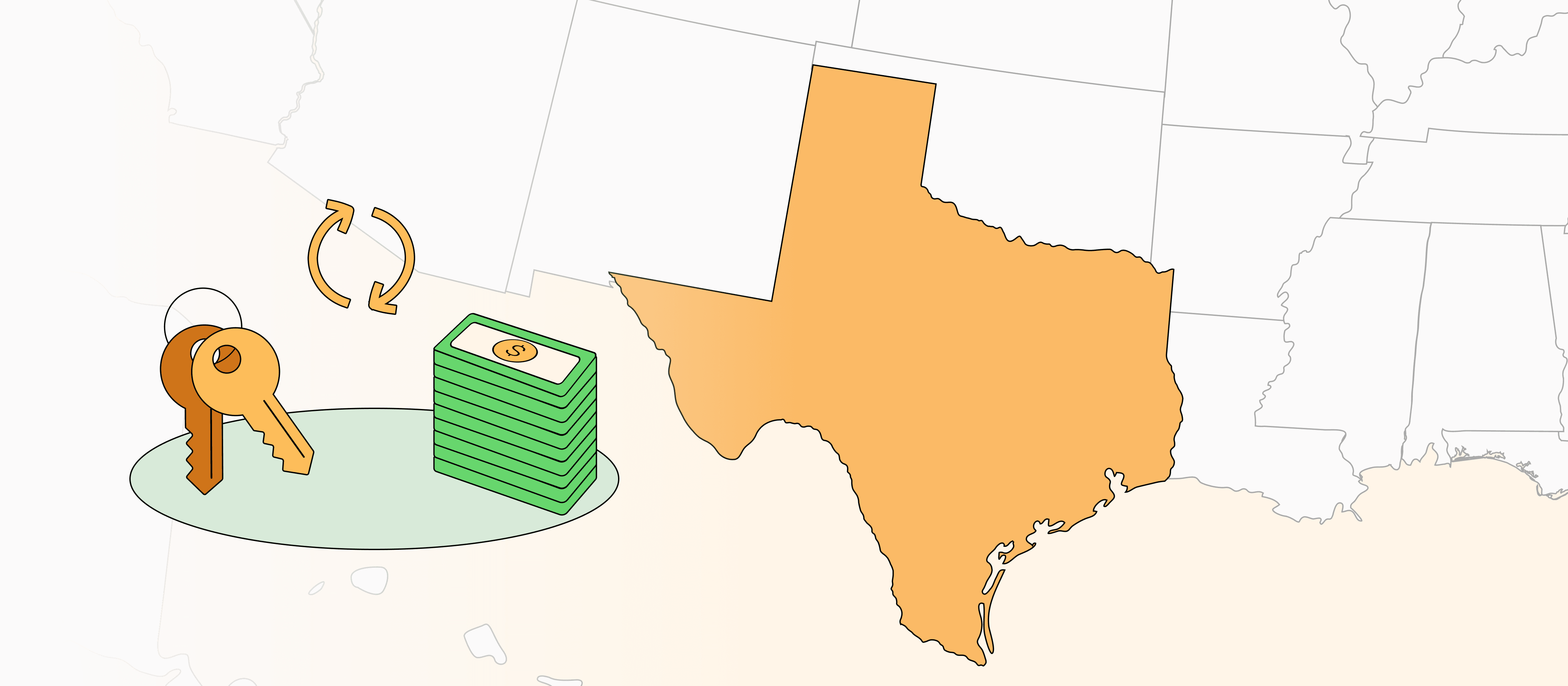| Quick Facts | Answer |
| Maximum / Limit | No Limit |
| Receipt Requirement | None |
| Inventory Requirement | None |
| Interest Requirement | None |
To learn about laws on security deposit returns in Texas, click here.
Maximum Security Deposit Allowed in Texas
There is no limit on the maximum security deposit in Texas. Many states have a limit on the amount of security deposit that can be collected, but Texas does not.
Landlords can give tenants the option to pay a monthly fee payable at the same time as rent instead of a security deposit. The landlord must notify the tenant in writing of:
- Their right to pay a security deposit instead of a monthly fee
- Their right to stop paying the monthly fee at any point and instead provide a security deposit
- The amount of each option (e.g., the monthly fee vs. the security deposit)
If the landlord uses the monthly fee to purchase insurance as protection for the rental, the fee cannot be more than the reasonable cost of obtaining and administering the insurance. Furthermore, if the landlord files a claim under the insurance, they can’t charge the tenant for the same damages.
Can Landlords Charge an Additional Pet Deposit in Texas?
Yes, landlords can charge an additional pet deposit in Texas, except for service dogs and emotional support animals.
How Much Rent Can a Landlord Collect Upfront in Texas?
There is no limit on the amount of rent that can be collected upfront in Texas. Many states have a limit on the amount of rent that can be collected at once, but Texas does not.
Security Deposit Collections in Texas
While other states have additional requirements for landlords that collect a security deposit, such as providing certain documentation of the condition of the unit at move-in, Texas does not.
Do Landlords Have to Provide a Receipt for the Security Deposit in Texas?
Landlords are not required to provide a receipt for the security deposit in Texas, although some states like Washington require a receipt.
What Obligations Do Landlords Have to Establish the Condition at Move-in in Texas?
While other states have additional requirements for landlords that collect a security deposit, such as providing certain documentation of the condition of the unit at move-in, Texas does not.
Security Deposit Holding in Texas
Texas law does not require landlords to hold security deposits separate from other funds, but the landlord must keep accurate records of all security deposits. Some other states mandate how and where security deposits are held, but Texas does not.
Are Tenants Entitled to Interest on Their Security Deposit in Texas?
Texas law does not require landlords to provide interest on held security deposits.
How Are Security Deposits Accounted for in Texas?
Security deposits are not considered taxable income when they are collected.
What Happens to a Security Deposit When the Property is Sold in Texas?
When a property is sold in Texas, the seller must transfer the security deposit to the new owner and provide written notice to the tenant including the amount of the deposit and a statement that a new owner has received the security deposit.
Sources
- 1 TX Prop § 92.111
-
If a security deposit is required by a residential lease, the landlord may choose to offer the tenant an option to pay a fee in lieu of a security deposit.
Source Link - 2 TX Prop § 92.111
-
A landlord may not charge the tenant a fee that is more than the reasonable cost of obtaining and administering the insurance purchased under this subsection.
Source Link - 3 TX Prop § 92.111
-
If an insurer compensates a landlord for a tenant’s damages or unpaid rent under a valid claim: (1) the landlord may not seek or collect reimbursement from the tenant…
Source Link - 4 TX Prop § 92.106
-
The landlord shall keep accurate records of all security deposits.
Source Link - 5 TX Prop § 92.105
-
…the new owner is liable for the return of security deposits according to this subchapter from the date title to the premises is acquired.
Source Link - 6 TX Prop § 92.105
-
The new owner shall deliver to the tenant a signed statement acknowledging that the new owner has acquired the property and is responsible for the tenant’s security deposit and specifying the exact dollar amount of the deposit.
Source Link

